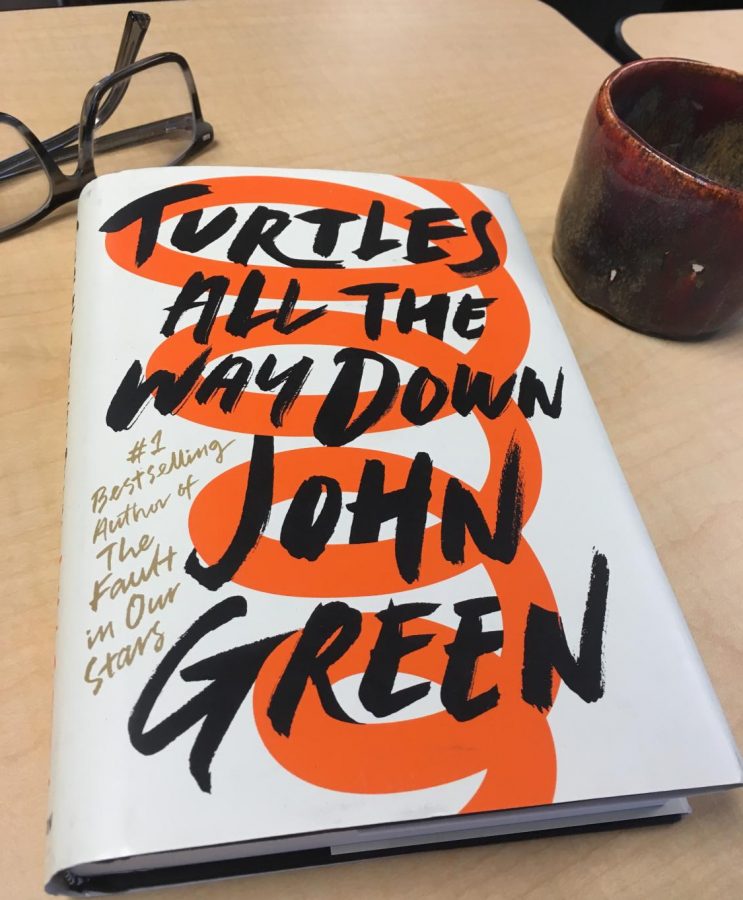John Green’s “Turtles All the Way Down” takes two thumbs up
John Green’s deep and thoughtful meditation of mental illness is long anticipated after his last book was published 5 years ago.
February 6, 2018
“Spirals grow infinitely small the farther you follow them inward, but they also grow infinitely large the farther you follow them out.”
Revelations on mental health proliferate the young adult novel Turtles All The Way Down by John Green. The book follows a girl trying to keep up with everything in her life: trying to be a good friend and daughter, trying to do well in school so she can go to a good college, and even trying to track down a fugitive billionaire, all the while losing a battle with her own mental health.
Aza is a high schooler who is constantly consumed by her own thoughts, but when the fugitive billionaire father of a former friend goes missing, and a $100,000 award is offered, she begins to investigate the disappearance. But as the investigation carries on, she spirals deeper into her own mind.
With 83,733 reviews, an average 4.11 stars on goodreads.com, and 16 weeks on the New York Times bestseller list for Young Adult Hardcover, the novel offers a poignant and fresh look at mental health, friendship, and love. Green’s widely popular 2012 novel The Fault In Our Stars was made into a movie in 2014, which may be the destination for Turtles given that John Green sold the rights of the book to Fox 2000 this year.
The title of the book refers to the idea that the entire world is flat and is on the back of a large turtle which itself rests on an even larger turtle, and so on. This idea confronts the issue of an infinite regression and ultimately helps Aza accept the absurdity of being one person who is plagued with seeming infinite thoughts that are not her own. The concept of infinite spirals, expanding forever outwards and tightening forever inwards, along with the infiniteness of the universe, and the infiniteness of the self all are explored throughout the book.
The story is an extraordinary act of empathy. It doesn’t try to clinically or scientifically understand obsessive-compulsive disorder (and mental health in general), nor does it default on cliches, but merely tries its best to take the reader into the mind of someone who is suffering from their own mind. “It’s quite rare to find someone who sees the same world you see,” Aza proclaims, and that’s really it. Her story is all at once intense, compassionate, and bitterly hopeful.
The book is also an intensely personal book for Green. He has suffered from obsessive-compulsive disorder his entire life and said in a video on Dec 5, 2017, “The big challenge for me in Turtles All The Way Down was whether I could use language to find some sort of direct form or expression for obsessive thoughts rather than only relying on metaphor.” To do this, he in part uses a stream-of-consciousness technique to illustrate the sporadic, violent, and compulsive nature of Aza’s obsessive thoughts. According to a 2010 study conducted by the National Institute of Mental Health, 1 in 5 adolescents in the U.S. are affected by some type of mental disorders. Turtles All The Way Down gives a voice to the kids who so often cannot find their own.



Mr. Parsons • Feb 7, 2018 at 9:40 pm
Good review. Makes me want to give the book a chance (I didn’t love The Fault in Our Stars).